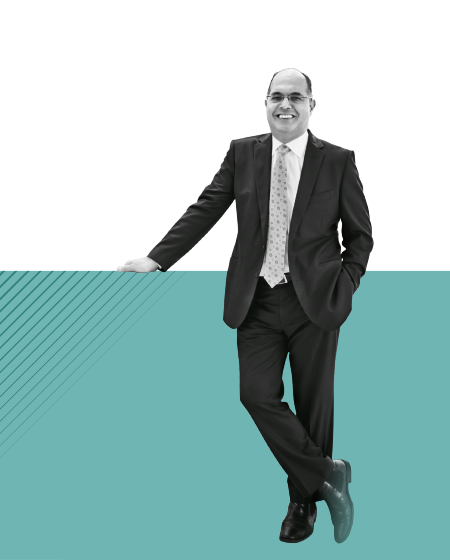It isn’t often you find an electrical engineer heading up a financial and risk services business. Alexander Forbes CEO Edward Kieswetter is, however, that rare individual – especially considering he also has three masters degrees: executive MBA, science education (cognitive development), and commerce (cum laude).
With such a broad variety of knowledge it is not surprising that Kieswetter is very focused on employee well-being – not just those of the Alexander Forbes family but of its clients too. It’s something he emphasised in August at the launch of Alexander Forbes’ annual Benefits Barometer, which this year acknowledged that most of the existing employee-benefits programmes fail to ensure physical, mental and financial well-being.
‘It is no longer enough for an employer to just provide a retirement fund,’ says Kieswetter. ‘Companies have a moral obligation to help their employees achieve financial stability by focusing on how they engage with their personal finances so that they will reap lifetime benefits. This has a direct impact on them remaining productive employees.’
With the financial-services sector facing enormous challenges, productivity is a keyword. Kieswetter explains that apart from the impact of an economic downturn, the industry is burdened by government’s mounting regulations. ‘Companies are having to invest deeper in compliance and risk management, as well as allocate additional capital to comply with statutory regulations. Ultimately this diverts much-needed capital that could fund organic and non-organic growth and expansion.
‘We are also experiencing rising competition in the industry as consumers seek value for money and relevant products and services, while needing to simultaneously attract and retain skills,’ he says.
‘Consumers are also stressed by high household indebtedness, using their discretionary income more for basic living expenses and repayment of debts, with little left for them to buy investment and savings products.’
‘The industry needs to reform the way it has been engaging with consumers and ensure that it sells appropriate and affordable products’
As an industry leader, Alexander Forbes and Kieswetter believe that the financial sector is well positioned to find innovative and disruptive strategies that will promote the financial well-being of people, he says, the basis upon which conversations about savings for retirement and investing for the future can become a meaningful interactive process with clients. ‘The industry needs to radically reform the way it has been engaging with consumers and ensure that it sells appropriate and affordable products to consumers.’
Being concerned about consumers is an Alexander Forbes directive.
‘Our higher purpose is to positively impact on the lives of people whom we touch,’ says Kieswetter. ‘The group has a unique product offering that encompasses savings, financial planning and management, insurance and retirement benefits, which is the result of our Strategic Intent restructuring.
‘Part of the restructuring means we will be expanding further into selected sub-Saharan Africa countries and disposing of assets that are considered non-core to our business.’
With operations in Botswana, Namibia, Kenya and Nigeria, Alexander Forbes is exploring opportunities along the west and east coasts of Africa, and remains acquisition-targeted. Its company results reflect its ability to do so, with group operating income net of direct expenses from continuing operations (at end March) up 12% to R4.9 billion. Operating profits from continuing operations before non-trading and capital items rose by 10% to R1.137 billion.
In 2014, after the exit of private equity investors, Alexander Forbes was re-listed on the JSE. As the largest retirement benefits company in SA – and one of the largest in sub-Saharan Africa – the firm has a rich and unique research and development unit that is constantly exploring new products and services for the continental market.
Alexander Forbes anticipates a trading profit of R2.020 billion by 2020. While somewhat ambitious, Kieswetter believes it is achievable ‘because the group is always responsive to the needs and aspirations of its clients, and in aiming to be distinctive among our peers, we attract and retain great people’.
Alexander Forbes staff are encouraged to participate in a number of charitable causes that the company supports. Most notable is the In 4 Life programme, which provides comprehensive care and support to orphans and vulnerable children from disadvantaged communities, from which 7 194 people benefited last year. The programme is also linked to a bursary scheme for matriculants to further their studies at tertiary level. Graduates of In 4 Life are recruited into the company’s internship programme, leading to prospects for permanent employment.
Kieswetter has a clear picture of how employees thrive. For him, it is about building leadership within individuals.
‘To do that you must first define a sense of purpose and clear position of intent, so that you know what you want to achieve. Only then can you engage with a team or staff about your intentions,’ he says.
‘This ensures that everyone is aligned to your vision and, importantly, allows them to rally behind that common purpose. In effect, a leader is a merchant of hope because in implementing the vision, you are also inspiring, encouraging, teaching and correcting others so that they in turn can realise their own potential and dreams.’








